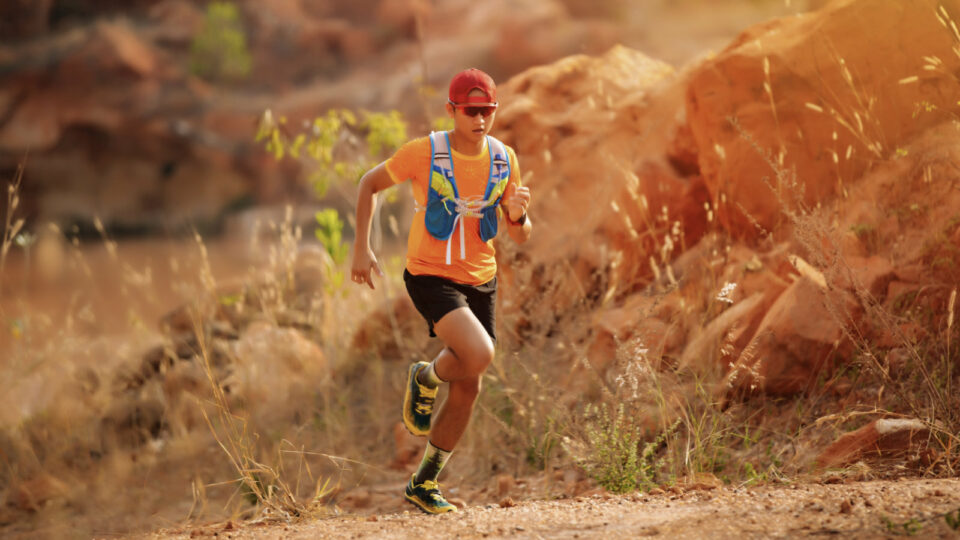The running community has always thrived on pushing boundaries, taking the human body to incredible lengths of endurance and strength. Among the various forms of running, a niche yet growing segment is that of ultra-marathoners.
These are individuals who surpass conventional marathon lengths, testing their mental and physical limits in the process.
This article takes you through the demanding yet rewarding journey of becoming an ultra marathoner.
Table of Contents
What is an Ultra-Marathon?
An ultra-marathon goes beyond the traditional marathon distance of 26.2 miles. Any footrace longer than this—typically starting at 50 kilometers (31.07 miles)—qualifies as an ultra-marathon.
These races come in a variety of formats, from specified distances like 50k, 100k, and 100 miles to timed events where participants aim to cover as much distance as possible within a set period.
The Ultra Marathoner Mindset
Becoming an ultra marathoner requires not only physical strength but also formidable mental fortitude. The ability to endure fatigue, manage discomfort, and maintain motivation over extended hours of running is a significant part of an ultra marathoner’s mindset.
Strategies such as breaking the race into smaller segments, using visualization techniques, and focusing on the present moment are all commonly used to conquer the mental demands of ultra-marathons.
Why settle for less when more is so much better? Because life begins after 42km!
Training to Become an Ultra-Marathoner
The journey to becoming an ultra marathoner is paved with miles of dedicated training. It starts with a solid marathon base and builds on it.
Here’s a sample ultramarathon training plan:
- Establish a Running Base: Comfortably run 32-48 kilometers (20-30 miles) per week before starting specific ultra-marathon training.
- Long Runs: Gradually increase your longest run each week, aiming for a distance that’s 60-70% of your race distance.
- Back-to-Back Runs: Train your body to run on tired legs by scheduling two long runs on consecutive days.
- Hill Workouts: Incorporate hill running in your routine to build strength and improve running efficiency.
- Rest and Recovery: Balance hard training with adequate rest and recovery to prevent overtraining and injury.
Do You Need to Hire a Ultra Marathon Coach?
Whilst many ultra marathoners have trodden the path to success solo, a running coach could streamline your journey, rendering it more systematic, less intimidating, and arguably more enjoyable.
A coach provides not only a bespoke training plan but also invaluable feedback, emotional bolstering, and insights gleaned from firsthand experience.
Finding the Perfect Coach:
- Recommendations: Consult fellow runners or delve into online running forums for personal testimonials and endorsements.
- Credentials: Ensure your prospective coach boasts pertinent qualifications or a demonstrable success history in ultra running.
- Compatibility: Their coaching style should resonate with your personality and training predilections.
- Specialisation: Certain coaches may focus on distinct terrains, be it mountain, trail, or desert ultras. Their expertise should align with your aspirations.
Nutrition for Ultra-Marathoners
Nutrition is a critical aspect of ultra-marathon preparation and performance. Here’s a list of recommended foods and their benefits:
- Complex Carbohydrates (e.g., brown rice, quinoa, oats): Provide sustained energy during long runs.
- Lean Proteins (e.g., chicken, fish, tofu): Aid in muscle repair and recovery post-run.
- Fruits and Vegetables: Supply essential vitamins and minerals to support overall health and immunity.
- Healthy Fats (e.g., avocado, nuts, olive oil): Serve as a valuable energy source for long-distance running.
- Hydration: Drink plenty of fluids daily. During long runs, sports drinks can help replace lost electrolytes.
The Ultra Marathoner Pace Chart
A pace chart for ultra marathoners is indispensable for strategy. Given that the distances and durations far exceed those in standard marathons, sustaining a consistent pace is paramount.
Recommended Pace Chart for a 100-km Ultra Marathon:
| Distance (km) | Suggested Pace (min/km) | Cumulative Time (hours:minutes) |
|---|---|---|
| 10 | 6:30 | 1:05 |
| 20 | 6:45 | 2:15 |
| 30 | 7:00 | 3:30 |
| 40 | 7:15 | 4:50 |
| 50 | 7:30 | 6:15 |
| 60 | 7:45 | 7:45 |
| 70 | 8:00 | 9:20 |
| 80 | 8:15 | 11:00 |
| 90 | 8:30 | 12:45 |
| 100 | 8:45 | 14:35 |
Bear in mind, these are merely indicative guidelines. Elements like elevation, terrain type, weather conditions, and personal endurance will affect your pace. Adapt your pace to the day’s circumstances and how you’re faring.
Common Challenges Faced by Ultra Marathoners
Ultra marathoners often encounter several challenges. Knowing what these might be can help you prepare and mitigate them:
- Fatigue: Ultra-marathons require running for extended periods, which can lead to physical and mental fatigue.
- Nutrition and Hydration Management: Balancing fuel and hydration over long distances is crucial and often tricky.
- Muscle Cramps and Injuries: Due to the physical demands, muscle cramps, sprains, and other injuries are common.
- Blisters and Chafing: Prolonged running can cause skin irritations and blisters.
- Gastrointestinal Issues: Eating and drinking during runs can lead to stomach problems in some runners.

Photo Credit: 123RF
Success Stories of Ultra-Marathoners
The world of ultra-marathoning has seen many exceptional athletes who have pushed boundaries and set new standards.
Here are profiles of the top five ultra marathoners of all time, and three top ultra marathoners from Asia:
Top Ultra Marathoners of All Time
- Dean Karnazes (Male, United States)
- Born: 1962
- Achievements and Accolades: Often hailed as the ‘Ultra Marathon Man,’ Karnazes achieved fame for his endurance feats, which include running 50 marathons in 50 U.S. states in 50 consecutive days and completing a 350-mile run without sleep for three nights. He was named one of the “Top 100 Most Influential People in the World” by Time magazine in 2006.
- Quote: “Run when you can, walk if you have to, crawl if you must; just never give up.”
- Scott Jurek (Male, United States)
- Born: 1973
- Achievements and Accolades: Jurek is renowned for his success in some of the most prestigious ultra-marathons. He’s a seven-time consecutive winner of the Western States 100 Mile Endurance Run and a two-time winner of the 135-mile Badwater Ultramarathon. He also set a record for the 2,189-mile Appalachian Trail.
- Quote: “Every single one of us possesses the strength to attempt something he isn’t sure he can accomplish.”
- Pam Reed (Female, United States)
- Born: 1961
- Achievements and Accolades: Reed made history by being the first woman to be an overall winner of a 300-mile race outright. She has won the Badwater Ultramarathon twice and once ran 491 miles non-stop, setting a U.S. record.
- Quote: “You can keep going and your legs might hurt for a week, or you can quit and your mind will hurt for a lifetime.”
- Yiannis Kouros (Male, Greece/Australia)
- Born: 1956
- Achievements and Accolades: Kouros is a legend in ultra-marathoning, holding numerous world records in races from 100 to 1,000 miles and 12-hours to 6-days. His records have often been described as otherworldly, with many standing for decades.
- Quote: “Running is my life. It is a way of expressing myself.”
- Ann Trason (Female, United States)
- Born: 1960
- Achievements and Accolades: Trason is considered one of the greatest female ultra-marathoners of all time. She has won the Western States 100 Mile Endurance Run an astounding 14 times and has held numerous world records, including the 100-mile track and the 12-hour road run.
- Quote: “We all have dreams, in a perfect world, we would like to have everything go as planned. However, reality is not perfect and it’s those imperfections that make life interesting.”
Top Ultra Marathoners From Asia
In Asia, the ultra-marathon scene has also seen some noteworthy athletes:
- Bando Yoichi (Male, Japan)
- Born: 1978
- Achievements and Accolades: Yoichi has completed some of the most challenging ultra-marathons globally, including the Badwater 135, Spartathlon, and the Hardrock 100. He is known for his grit and consistent performances.
- Najib Ramly (Male, Malaysia)
- Born: 1981
- Achievements and Accolades: Ramly is one of Malaysia’s top ultra-marathoners, having won numerous races in Southeast Asia. His strength lies in tropical ultra-marathons, where he endures high humidity and temperatures.
- Mira Rai (Female, Nepal)
- Born: 1988
- Achievements and Accolades: A former child soldier, Rai found solace in running and quickly rose to become one of the world’s best ultra-runners. She has won multiple races internationally and uses her platform to advocate for Nepalese girls and women in sports.
- Quote: “When I run, I feel like I’m flying. I feel free and I feel powerful.”
These individuals exemplify the spirit of ultra-marathoning—endurance, determination, and an indomitable will to keep pushing forward.
Their stories inspire countless runners around the globe to test their own limits and see just how far they can go.
Preparing for Your First Ultra-Marathon
Embarking on your first ultra-marathon is a thrilling venture. Here’s a step-by-step guide to help you prepare:
- Choose Your Race: Select an ultra-marathon that suits your fitness level and preference in terms of course profile (flat, hilly, trail, road) and climate.
- Develop a Training Plan: Based on the race you’ve chosen, develop a training plan that gradually builds your mileage and running efficiency.
- Gear Up: Invest in the right running shoes that provide comfort and support for long distances. Also consider other gear such as hydration packs, comfortable clothing, and headlamps if needed.
- Nutrition Plan: Develop and test your nutrition plan during training. Know what, when, and how much you will eat and drink during the race.
- Rest and Recovery: Prioritize rest and recovery, especially in the weeks leading up to the race.
- Mental Preparation: Use techniques like visualization and mindfulness to prepare mentally for the demands of the race.
- Race Day Strategy: Have a race-day plan, including your pacing strategy, how you’ll handle aid stations, and what you’ll do in case of any problems.
Remember, every ultra marathoner started with their first step into unknown territory. Your journey is uniquely your own. Embrace the training, the race, and, most importantly, enjoy the experience.
What is an ultra marathoner?
An ultra marathoner is an athlete who competes in running distances longer than a traditional marathon, typically beyond 42.2 km (26.2 miles).
How do I become an ultra marathoner?
Start by building a strong running base, seek guidance through coaching, and progressively increase your distances while incorporating varied training sessions.
Is special equipment required for ultra marathons?
While standard running gear suffices, many ultra marathoners invest in hydration packs, trail shoes, and nutrition specific to prolonged running.
What sets an ultra marathoner apart from a marathoner?
An ultra marathoner trains to endure longer distances beyond the standard 42.2 km marathon, often involving varied terrains and extended hours.
Are there health risks associated with being an ultra marathoner?
While running can be beneficial, ultra distances may pose risks such as dehydration, injuries, and exhaustion. It’s crucial to train wisely and listen to one’s body.
How often do ultra marathoners train?
Training frequency varies, but most ultra marathoners train multiple times a week, incorporating long runs, speed work, and recovery sessions.
Why do people become ultra marathoners?
Reasons vary; some chase the challenge, others the thrill of endurance, and many appreciate the camaraderie and natural scenery of trail runs.
Can anyone run an ultra marathon?
Yes, with proper training and determination, most individuals can run an ultra marathon. However, it’s essential to build endurance progressively, maintain a consistent training regimen, and seek medical advice if new to long-distance running.





